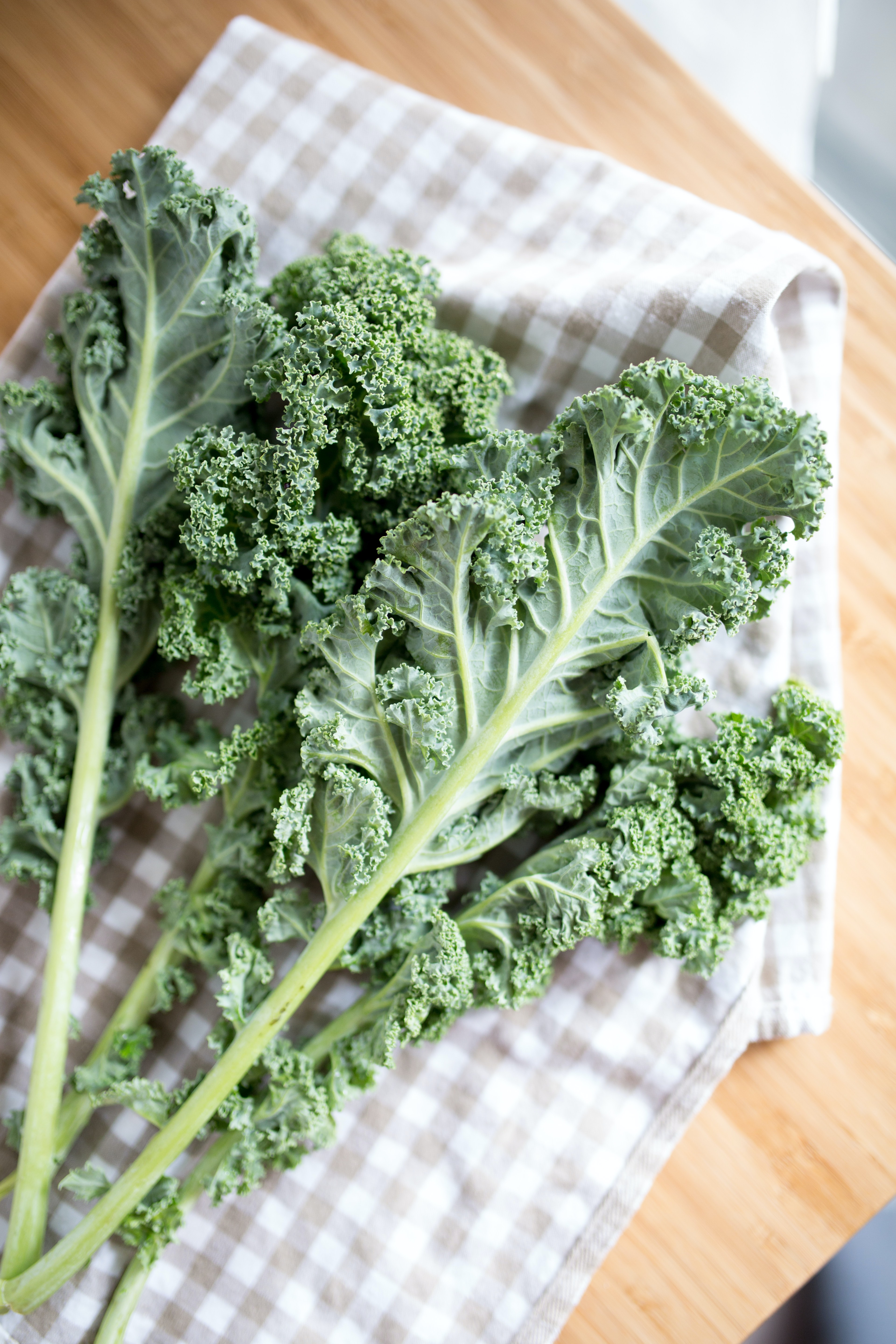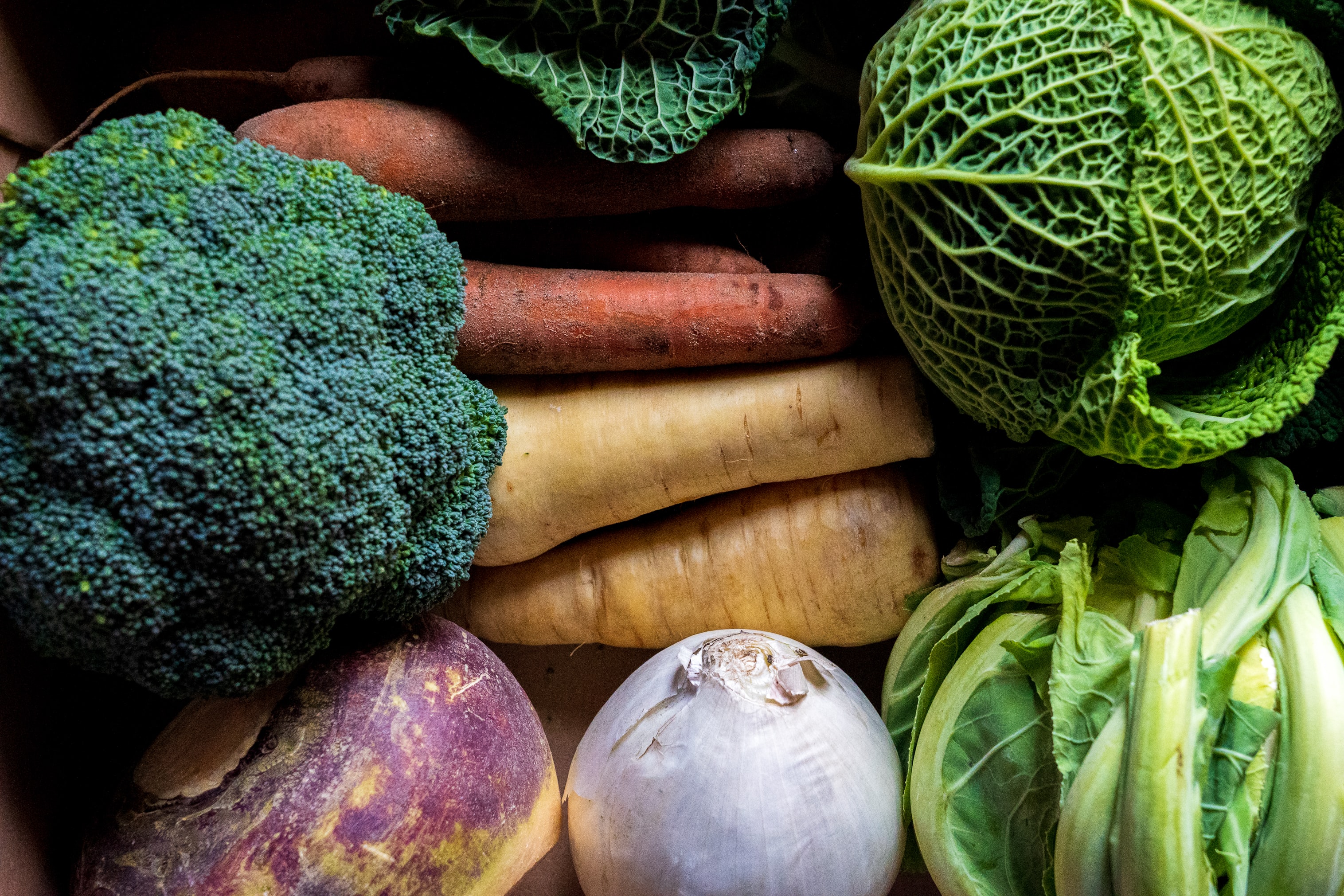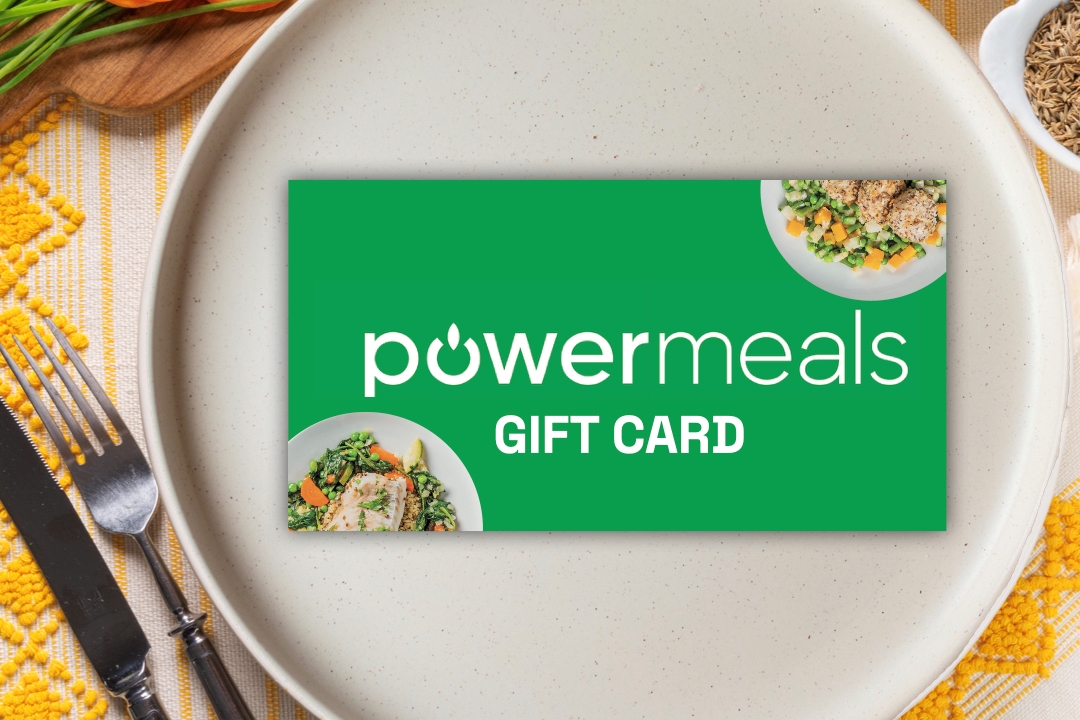Winter vegetables in December - what seasonal foods should you buy?

It’s December and we’re all looking forward to celebrating the end of the year and enjoying some winter treats. The first snow has already fallen, but there are some vegetables that can still withstand the cold. Read on to find out which seasonal fruits and vegetables you can enjoy this winter.
With temperatures in the minus range we’re all looking for hearty dishes to fill our kitchens. Luckily there are numerous winter vegetables flourishing that fit perfectly into a warm winter dish!
5 good reasons why it pays to eat seasonally
Before we go into the vegetables to look out for this December, we wanted to explain some of the benefits of eating seasonally.
1. the taste
Food that is harvested ripe tastes better. The fruits and vegetables have been given time to reach their full flavour in the soil as opposed to ripening on a supermarket shelf. They are crunchy, juicy and full of colour.
2 fresh food contains more nutrients
Plants develop their nutrients through sunlight and good soil. When food is harvested in season the plant has received more sun and had more time to develop healthy nutrients.
3. seasonal food is cheaper
Seasonal products are cheaper, not only because of the shorter transport distances. Since there is always a surplus of the respective food in season, the price drops. If you go to a weekly market you can keep an eye out for price drops. As soon as the season of a product comes to an end, the price will go up again.
4. the environment is protected
Seasonal food requires less human intervention. You don’t need to waste energy heating a greenhouse, as seasonal crops can be grown outdoors. Seasonal food also means regional products, so they don’t have to be transported halfway around the world. This is good for the environment, not only because of reduced CO2 emissions, but also because less packaging materials are needed.
5. buying seasonal products ensures variety
If you shop seasonally, you will need to adapt your recipes every few months. This lets you try out new dishes and ingredients all the time. Eating a variety of different fruits and vegetables is also a key part of a healthy diet.
Which vegetables can still grow in the cold season?
One of the best vegetables to reach for over the winter months are the many varieties of cabbage. Cabbages are packed with nutrients such as vitamins C, A, B, E and K and minerals such as calcium, iron and magnesium to help you fight off winter bugs. In December, white cabbage, Brussels sprouts, feather cabbage and Chinese cabbage are all available from regional outdoor cultivation. Red cabbage and savoy cabbage are also available although may have been grown earlier in the season and stored in cellars.
To preserve as many nutrients and as much of the flavour as possible, cabbage is best prepared in a steamer. We recommend serving red cabbage as a colourful side dish to a Christmas roast or try adding Chinese cabbage to a noodle stir fry.
Leeks, onions, garlic, shallots are also in seasons. They can be used to add a flavour to every dish and also have nutritional benefits: they provide us with vitamins C and K, folic acid and minerals such as potassium, magnesium and iron. Perfect therefore, for strengthening the body's immune system. Garlic also contains a large number of ingredients that are said to have antibiotic and antifungal effects.
Whether raw, boiled or fried, leeks can be prepared in a variety of ways. In winter they are particularly suitable for hearty stews, soups and casseroles, but they can also refine Mediterranean or Asian cuisine.
Swiss outdoor cultivation |
Swiss grown and stored |
|
White cabbage Brussels sprouts Feather cabbage Chinese cabbage Lamb’s lettuce Leeks Onions Garlic Shallots |
Red cabbage Savoy cabbage Carrots Potatoes Pumpkin Squash Celeriac Radish Radicchio Apples Pears |
Vegetables from the store
The supply from regional outdoor cultivation is currently low but other Swiss vegetables are still available, although most of them come from storage. For example you can still buy Swiss carrots, potatoes, pumpkin, radish and radicchio. Fruit is also running low: apples, and pears are in storage.
Try Powermeals this winter
The new year is getting closer and closer and with it our new winter menu! Order meals from the 1st week of January and discover the seasonal flavours of Switzerland.


